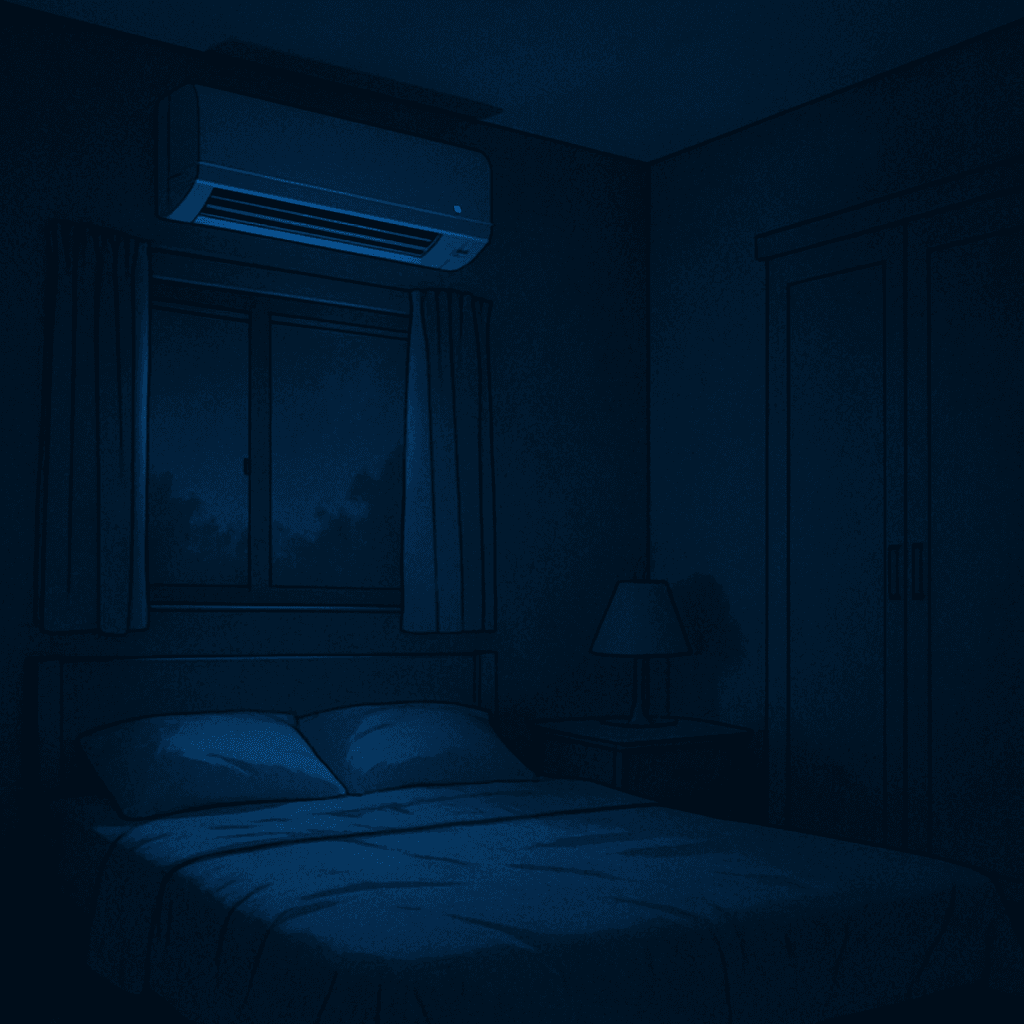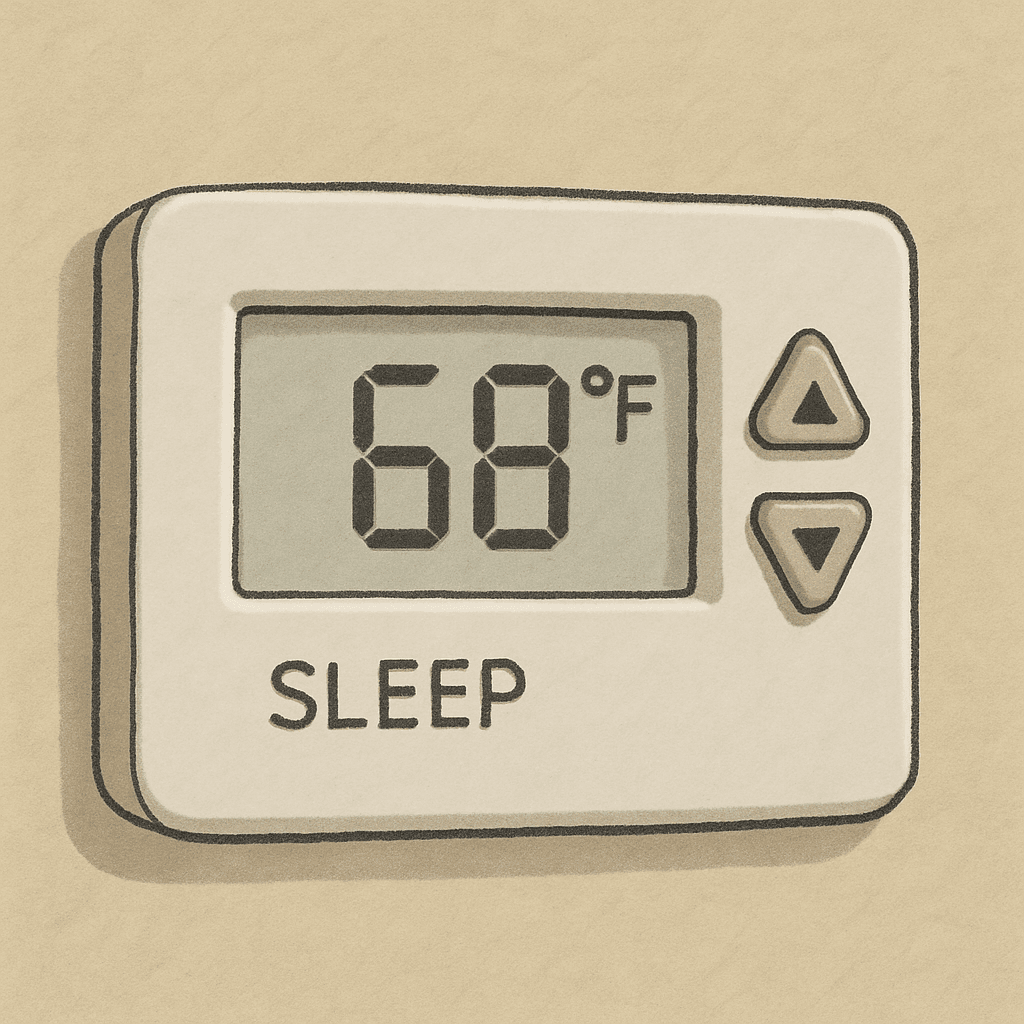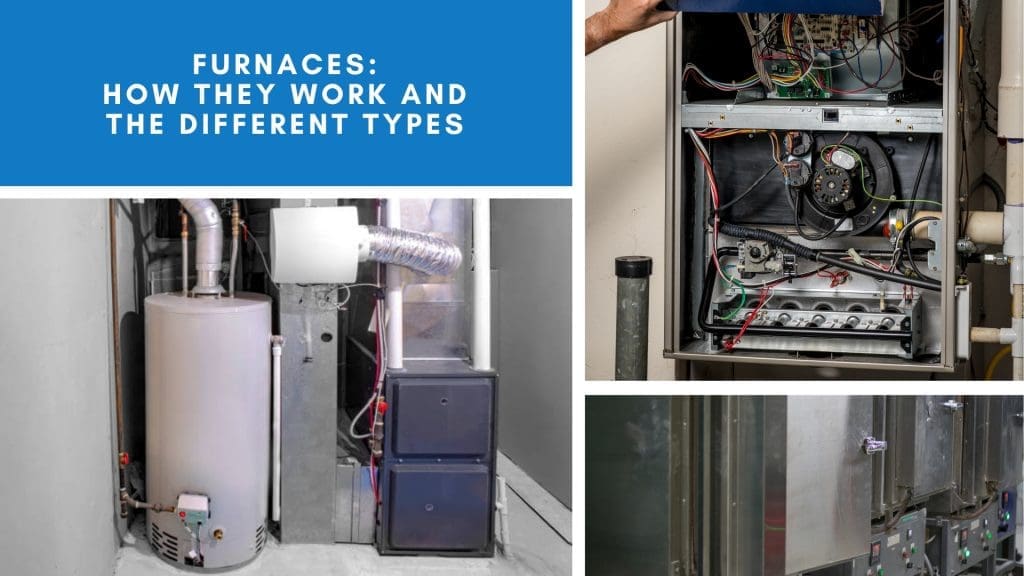In the hustle and bustle of modern life, a good night’s sleep can sometimes feel like an elusive dream. Whether you’re a stay-at-home mom juggling endless tasks, a small business owner navigating the complexities of customer satisfaction, or working from home and struggling to find time for HVAC issues, sleep is crucial. Fortunately, your air conditioning unit might just be the unsung hero in your quest for Fast and Deep Sleep. Understanding how your AC can be used to create the perfect sleep environment is the first step towards achieving consistent, rejuvenating rest.

The Connection Between Sleep and Temperature
The temperature of your sleeping environment plays a significant role in the quality of your sleep. Research shows that a cool room can help you fall asleep faster and stay asleep longer. Our body’s natural sleep-wake cycle is closely linked to temperature, which decreases slightly at night as a part of the sleep process. Understanding this connection is crucial to optimizing your sleep environment.
The Science Behind Temperature and Sleep
Temperature regulation is a critical function of the body’s circadian rhythm. At night, our body temperature naturally drops as melatonin production increases, signaling that it’s time to sleep. A cooler room aids this natural process by facilitating a drop in core temperature, which helps induce sleepiness. Additionally, maintaining a steady, cool temperature throughout the night can prevent disturbances and promote longer periods of deep sleep.
Ideal Sleeping Temperatures
Most sleep experts agree that the ideal bedroom temperature for sleep is between 60 to 67 degrees Fahrenheit. This range allows your body to comfortably drop to its lower nighttime temperature without causing discomfort or chills. Adjusting your room’s temperature to this optimal range can significantly improve the quality of your sleep, helping you to wake up feeling more refreshed and energized.
The Impact of Temperature on Sleep Stages
Deep sleep, also known as slow-wave sleep, is crucial for physical recovery and memory consolidation. A cooler environment can help you enter these deeper stages of sleep more quickly and maintain them longer. Conversely, a room that is too warm can lead to frequent awakenings and lighter sleep stages, which can reduce the restorative benefits of your slumber.
How Your AC Can Help
Your AC is your best friend when it comes to creating the ideal sleep environment. Here’s how:
Temperature Control and Consistency
Your AC allows you to maintain a consistent and optimal sleeping temperature throughout the night. By setting your thermostat to a comfortable range, you can avoid the common problem of waking up too hot or too cold. This consistent temperature helps to stabilize your body’s internal sleep clock, promoting longer and more restful sleep cycles.
Humidity Regulation for Comfort
Humidity can have a profound impact on comfort levels and sleep quality. High humidity can make a room feel warmer than it actually is, while low humidity can lead to dry skin and respiratory discomfort. Your AC helps to regulate humidity levels by removing excess moisture from the air, creating a more comfortable sleeping environment that encourages deeper, uninterrupted sleep.
White Noise Benefits
The gentle hum of an AC unit can serve as white noise, helping to mask disruptive sounds from outside your home. This can be particularly beneficial if you live in a noisy area or if you are sensitive to sudden noises. White noise can help to block out distractions, allowing you to fall asleep faster and enjoy more continuous sleep throughout the night.

Tips for Using Your AC to Improve Sleep Quality
Optimizing your AC use can further enhance your sleep quality. Here are some tips to make the most of your air conditioning system:
Regular Maintenance Is Key
To ensure your AC is operating at its best, regular maintenance is essential. Cleaning filters, checking refrigerant levels, and ensuring all components are in good working order will help your system run efficiently, keeping your room cool and comfortable. Routine maintenance not only extends the lifespan of your unit but also ensures that it operates with maximum energy efficiency, saving you money on energy costs.
Invest in a Programmable Thermostat
A programmable thermostat can be a game-changer for your sleep. Set it to lower the temperature just before bedtime and raise it slightly in the morning. This automation ensures your bedroom is always at the perfect sleeping temperature without requiring manual adjustments. Additionally, some smart thermostats can learn your schedule and adjust settings based on your habits, further enhancing convenience and energy efficiency.
Consider Energy Efficiency and Upgrades
While running your AC all night might seem costly, modern units are far more energy-efficient than older models. If your system is outdated, consider upgrading to a newer, energy-efficient model. The initial investment can lead to significant savings on your energy bills over time. Look for units with high SEER ratings and energy-saving features, and consider consulting with an HVAC professional to find the best option for your home.
Optimize Airflow and Room Arrangement
Ensure that air vents and pathways are clear of obstructions to promote optimal airflow. Arrange your bedroom furniture to allow for even distribution of cool air. Additionally, using fans in conjunction with your AC can enhance circulation and help maintain a consistent temperature throughout the room, further boosting your comfort and sleep quality.
When to Call in the Pros
Sometimes, despite your best efforts, the AC may not be cooling your room effectively. If you find yourself too hot to sleep or running hot while sleeping, it might be time to contact an HVAC professional. At LC Heating and Air Conditioning, we are committed to helping you achieve the perfect sleep environment. Our trained technicians can diagnose and resolve issues with your AC unit, ensuring it runs smoothly and efficiently.
Identifying Common AC Problems
Common issues that can affect your AC’s performance include refrigerant leaks, faulty compressors, and clogged filters. Recognizing these problems early can prevent larger, more costly repairs down the line. If you notice unusual noises, weak airflow, or inconsistent cooling, it’s time to call in the experts to assess and address the issue.
Benefits of Professional Maintenance
Regular professional maintenance can significantly extend the life of your AC unit and improve its performance. Technicians can perform thorough inspections, clean internal components, and ensure that your system is operating at peak efficiency. Investing in professional maintenance can save you money in the long run by preventing unexpected breakdowns and reducing energy consumption.
When Replacement Is Necessary
If your AC unit is outdated or beyond repair, replacement may be the best option. Modern systems offer advanced features, improved energy efficiency, and better cooling capabilities. Consulting with a professional can help you determine the most suitable replacement for your needs and budget, ultimately enhancing your comfort and sleep quality.
Exploring Other Sleep Aids
While your AC can significantly improve your sleep quality, sometimes additional sleep aids may be necessary. Here are a few non-prescription options to consider:
Natural Sleep Supplements
- Valerian Root: Known for its calming effects and ability to reduce the time it takes to fall asleep. Valerian root has been used for centuries as a natural remedy for insomnia and anxiety, and it is available in various forms such as teas, capsules, and extracts.
- Magnesium: Helps regulate neurotransmitters and can improve sleep quality. Magnesium is essential for many bodily functions, including relaxation of muscles and reduction of stress, making it a popular choice for those seeking to enhance their sleep naturally.
- Lavender: Often used in aromatherapy, lavender can promote a calming environment conducive to sleep. Lavender essential oil can be diffused in your bedroom or applied topically in diluted form to help create a peaceful and relaxing atmosphere.
Behavioral Adjustments for Better Sleep
- Establish a Bedtime Routine: Creating a consistent pre-sleep routine can signal your body that it’s time to wind down. Activities such as reading, taking a warm bath, or practicing relaxation exercises can help prepare your mind and body for sleep.
- Limit Screen Time: Reducing exposure to screens before bed can help your body produce melatonin, the sleep hormone. The blue light emitted by phones, tablets, and computers can interfere with melatonin production, so it’s advisable to turn off devices at least an hour before bed.
- Mindfulness and Relaxation Techniques: Practices such as meditation, deep breathing, and progressive muscle relaxation can reduce stress and promote a sense of calm, making it easier to fall asleep and stay asleep.
Non-Melatonin Sleep Aids
If melatonin supplements haven’t worked for you, consider alternatives like valerian root or magnesium. These can be effective in promoting relaxation and easing you into sleep. Exploring different options and finding what works best for your body can lead to improved sleep quality and overall well-being.

Conclusion: How AC Supports Fast and Deep Sleep
A good night’s sleep is within your reach, and your AC unit is a powerful tool in achieving it. By maintaining the right temperature, you can enhance your sleep quality and wake up refreshed and ready to face the day. Remember, if you encounter issues with your AC or need professional advice, don’t hesitate to contact us at LC Heating and Air Conditioning. We’re here to help you create the optimal sleep environment for your needs.
Sleep well, and wake up ready to tackle whatever challenges the day may bring! Understanding how to leverage your AC and other sleep aids can transform your nights from restless to restful, empowering you to live each day to the fullest.


